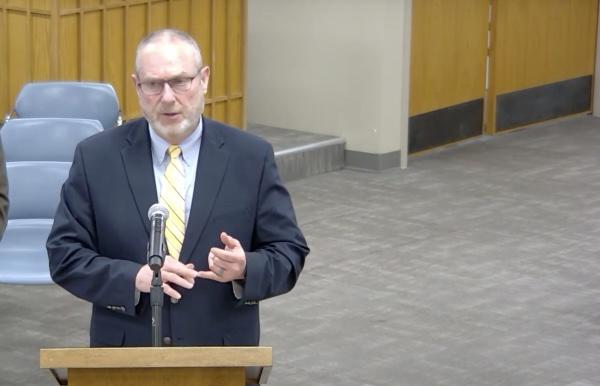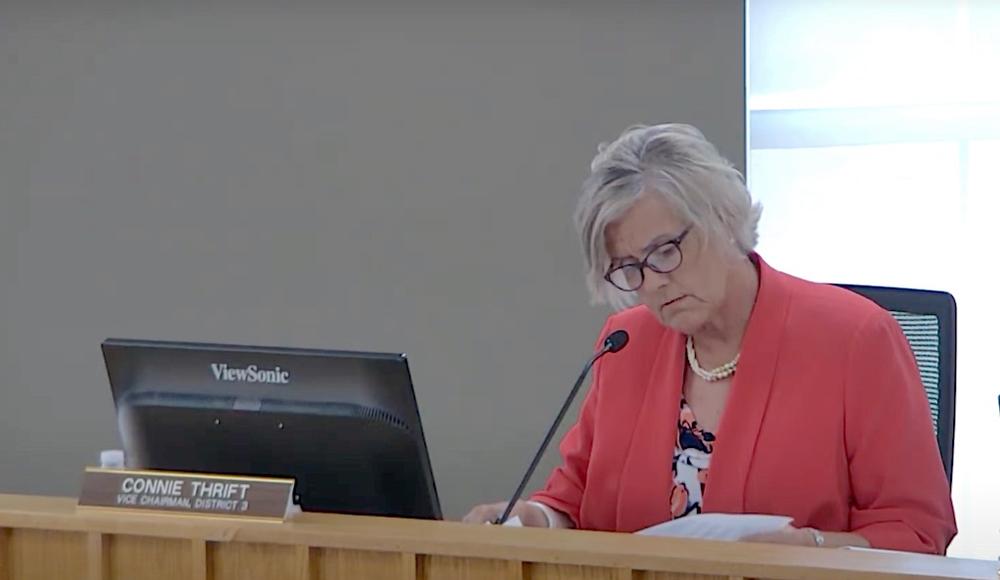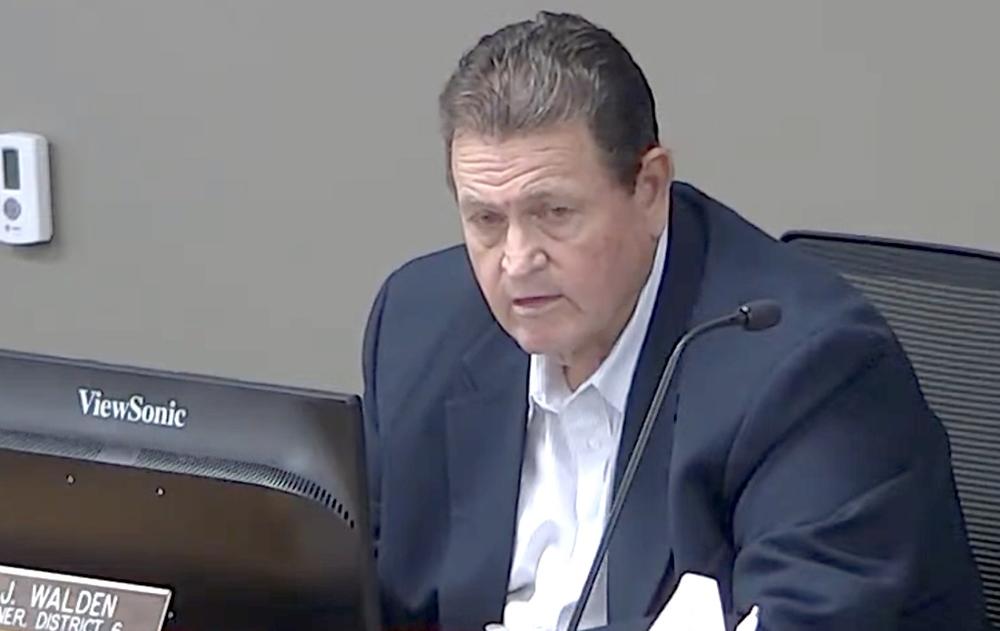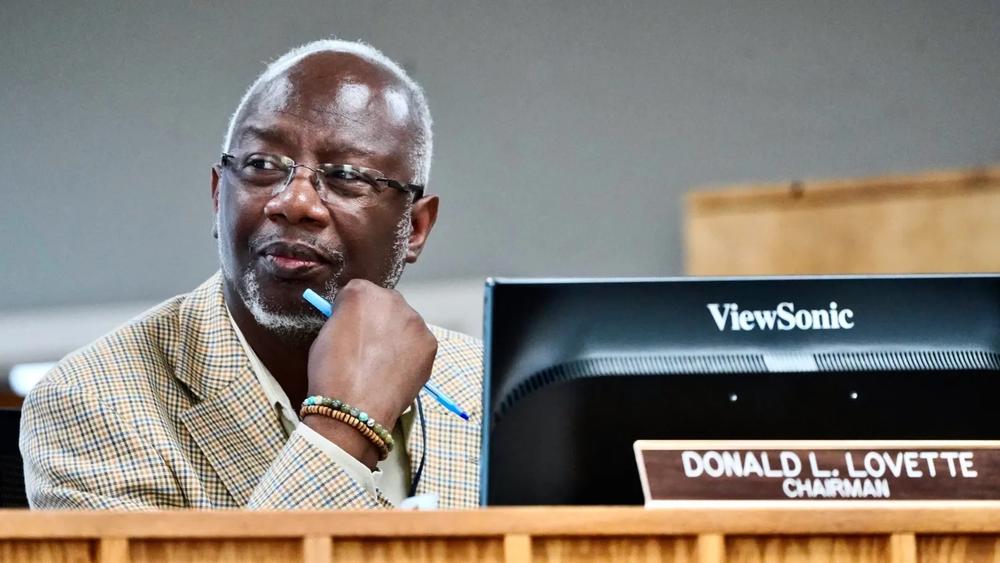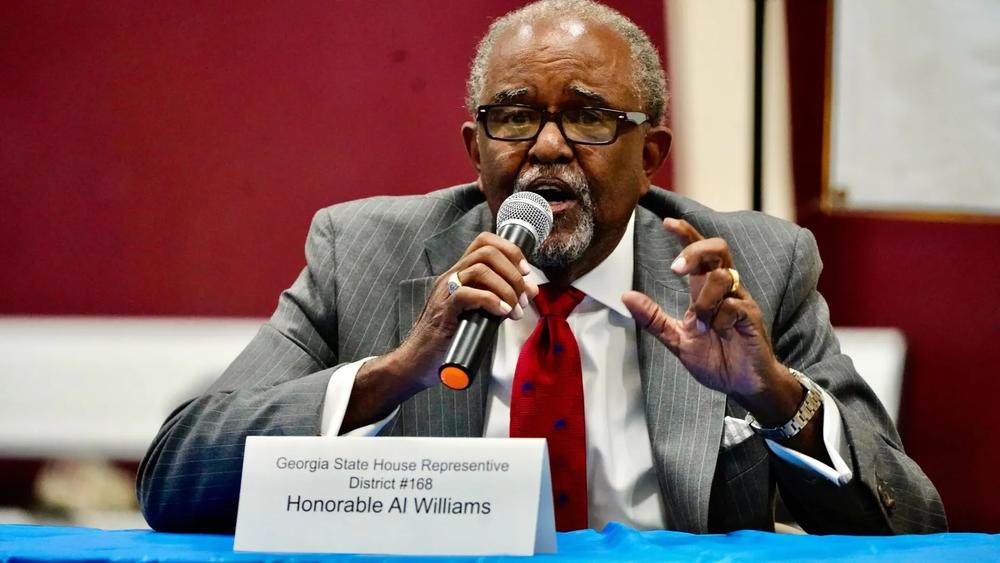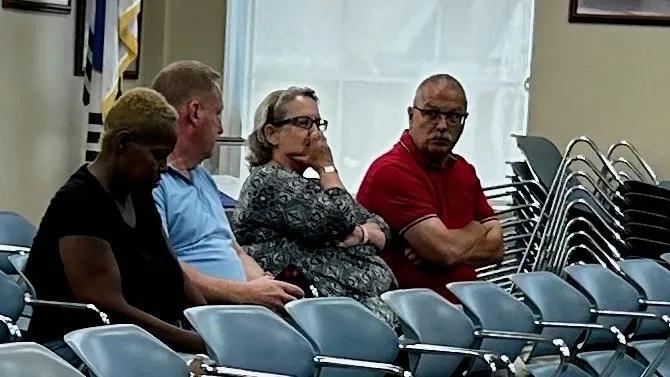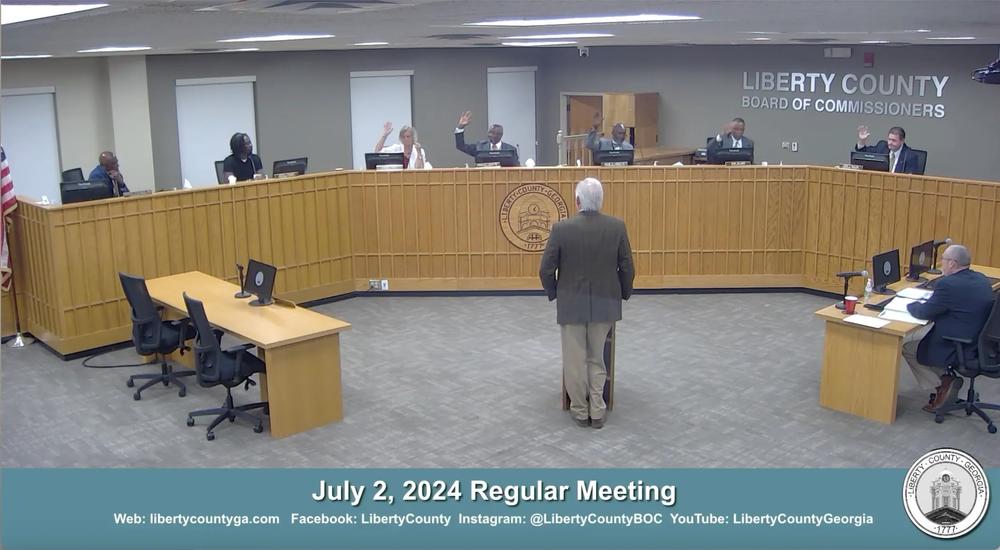
Caption
As Chairman Donald Lovette calls for a show of hands, the Liberty County Board of Commissioners voted 4 to 2 to adopt a memorandum of understanding with Sheriff William Bowman over the use of Redspeed camera fines, Hinesville, Ga., July 2, 2024.
Credit: Liberty County Board of Commissioners

